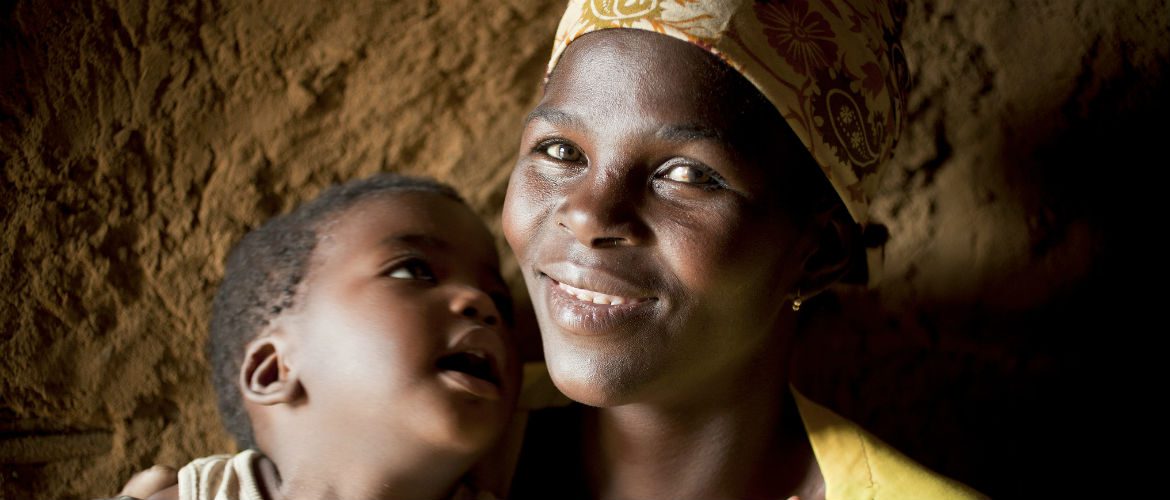
No matter where you live, raising a family is a tough job. But if you’re a parent living in poverty, raising a family becomes more than a difficult task: it can test their very limits to survive.
As a widow in rural Mozambique, Tereza and her children often went hungry. Jobs were hard to find and food was scarce. Tereza had no choice but to sacrifice her own health to keep her children alive.
Nearby in the Democratic Republic of Congo, Louise and her family hid in the forest. Conflict had torn their community apart. For years, they lived in fear and despite their best attempts to survive, not all of them would.
And across the world, Lisa clutched her newborn son. Less than 24 hours before his arrival, she had lost her home to the most vicious cyclone to hit Vanuatu — Cyclone Pam.
But in the face of hunger, conflict and disaster, these three mothers have shown extraordinary resilience, compassion, love and strength. And thanks to initiatives like Oxfam Unwrapped, these mums are lifting themselves — and their children — out of poverty.
A mother living with hunger
As a mum to four kids and a widow in rural Mozambique, life was tough for 32-year-old Tereza. She lived each day not knowing where their next meal would come from.
“Hunger is a major problem that’s why I chop trees to make ends meet. It’s overwhelming to think about hunger. As you can see I am the father and mother of my children and each child looks at me for support,” said Tereza.
To make even a small amount of money, Tereza would burn charcoal and sell it by the side of the road. The process is physically demanding, time-consuming and has little financial reward. Inhaling the fumes was also making her sick.
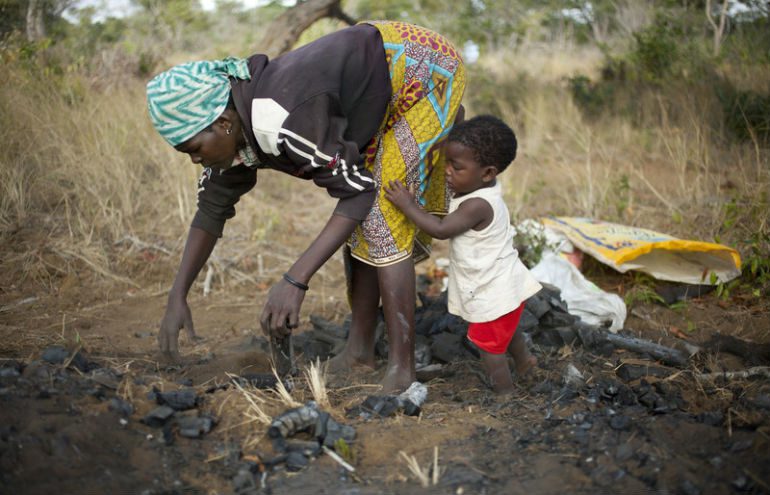
“Selling charcoal doesn’t help much, however I do it to make a little money to buy food so that we don’t die of hunger,” said Tereza.
“Children don’t understand. When they want something to eat I am the one who has to worry about it.”
Thankfully, life is changing for Tereza and her family. In Mozambique, goats and chickens are creating a new income stream that can feed families, send kids to school, and keep them safe from disease.
Learn more about Oxfam Unwrapped goats.
A mother living in conflict
In the Democratic Republic of Congo, armed conflict has torn families apart.
Louise and her family survived the conflict by hiding in the mountains. But cut off from services and essential supplies, nothing could stop the disease that would take the lives of her husband and three of her children.
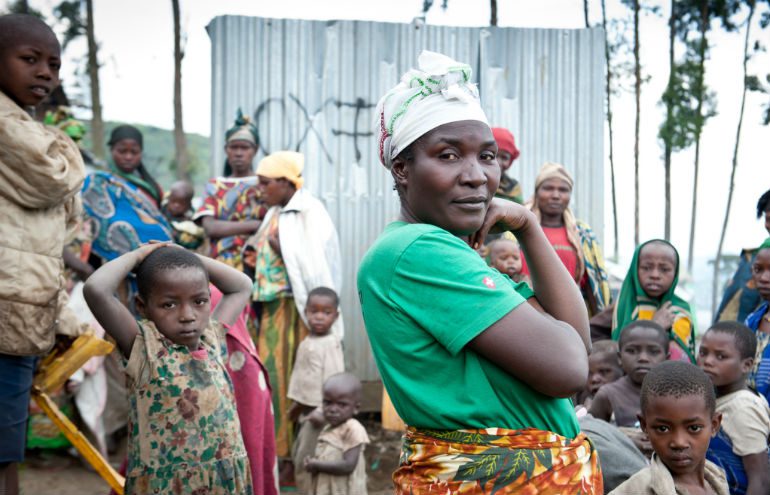
Now, Louise and her surviving children are safe within Buporo camp. Entire families have come to seek refuge here — but not everyone makes it.
“Usually I wake up early in the morning and go to see if there is anyone at the trading centre [in the camp] who will give me work. I can carry sand or anything. I will do anything to survive,” says Louise.
“One day I went down and there was a girl sleeping on the road and she was so, so dirty. She’d spent the night there. Women said, ‘there is always a woman who takes care of people and carries them to hospital, she will help’ – and I was the one.
“I bought soap, washed her and carried her on my back. I thought her Mum would come and get her but it’s now two years and no one has come for her.”
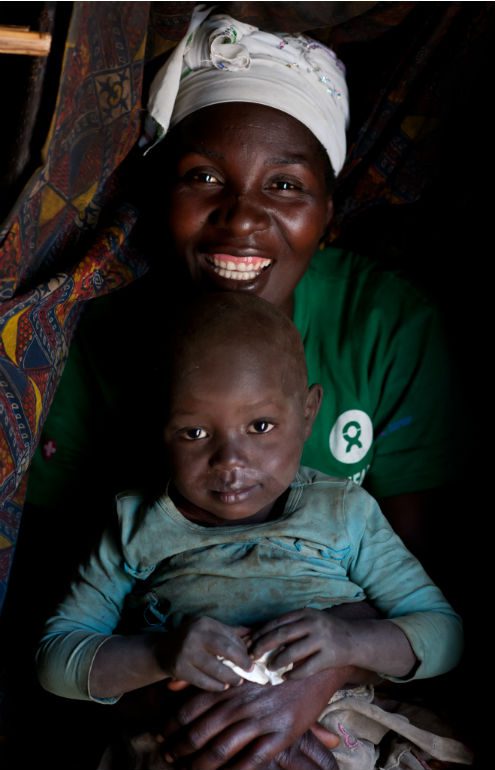
Louise now cares for baby Rose like she’s her own. She joins two other orphans that Louise has already taken into her care. And now, as an Oxfam Hygiene Coordinator, she’s doing everything she can to keep children safe from preventable disease.
Discover how you can help stop the spread of disease with Oxfam Unwrapped.
A mother living with disaster
Tropical Cyclone Pam struck Vanuatu on the evening of 13 March 2015 causing widespread destruction and devastation. Lisa was nine months pregnant when the storm hit. After a terrifying night, she gave birth to her son.
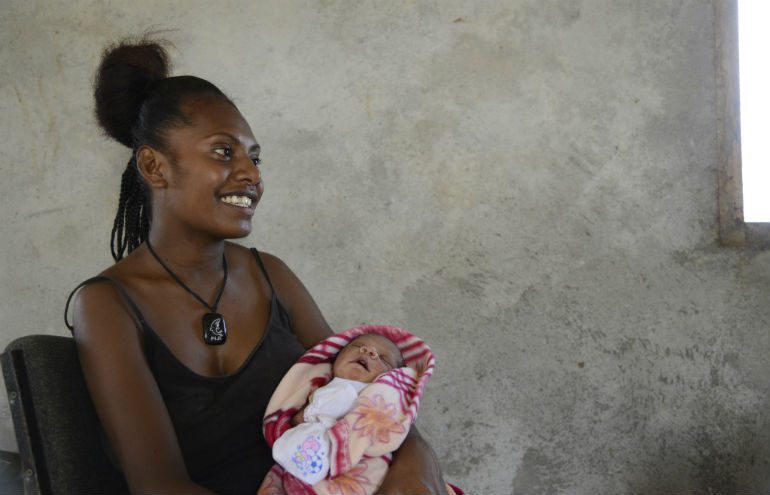
“During the storm we were here inside the church. The water was coming inside, the roof was not off but the nails were coming out so the men had to go outside and nail it down. The door was blowing open so the men were trying to shut it,” said Lisa.
“My only thought was that ‘this is the end’”.
Many families in Vanuatu are extremely poor and were living in makeshift homes when the cyclone hit. 15,000 homes were damaged or destroyed, up to 96% of food stocks were ruined and water supply to 110,000 people was disrupted, destroyed or contaminated.
“… when we stepped outside we could see there were no more leaves and no more houses. Everyone was outside crying because we have lost everything,” said Lisa.
“After the storm the water is dirty but we have to use it to wash and drink because there is no other water.”
In the days following the cyclone, Oxfam focused on the immediate supply of clean water to affected communities on the island of Efate. Over the course of a month, our teams delivered 265,800 litres of clean water to almost 3,500 people.
‘We are very happy to have you helping us with clean water. I think this water will help my baby and me because this water is clean and I can use it to drink and wash clothes,” said Lisa.
Learn more about clean water for a family with Oxfam Unwrapped.
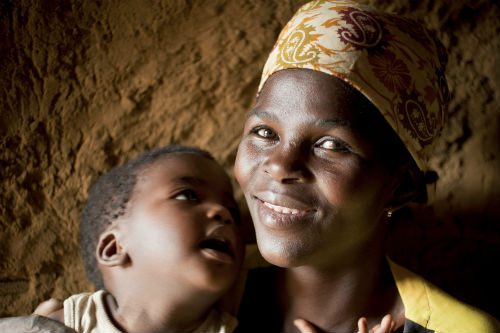
Give your mum Oxfam Unwrapped this Mother’s Day
This Mother’s Day, you can give your mum a truly heart warming gift with Oxfam Unwrapped; one that can help mums around the world like Teresa, Louise and Lisa.